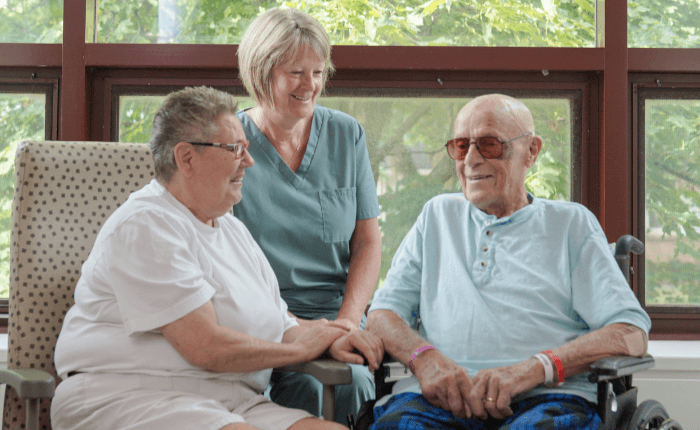Recreation Therapy

Therapeutic Recreation is a health profession that uses meaningful participation in recreation and leisure as a process to help individuals with limitations achieve quality of life, optimal health, and to maximize their independence and functioning.
What is Recreation Therapy?
Recreation Therapy is a health care profession that utilizes recreation, leisure, and other activity based interventions to help individuals with illnesses and/or disabling conditions overcome health barriers to maintain or improve and maximize health, physical function, social and emotional well-being, and overall quality of life.
What Services Are Offered?
Assessment: A Recreation Therapy assessment is used to identify a person’s strengths, needs and interests to determine priorities and set goals for involvement in recreational pursuits.
Education: The Recreation Therapy team educates individuals and families on the benefits of participating in recreational pursuits. Providing information on community programs, activities and services including aspects such as required skills/abilities, equipment, and cost involved, is a key part of our role in assisting people with making their decisions about participation.
Patient Participation in Activities: There are many opportunities for patients to become involved in a variety of organized recreation programs, which are offered on a one-to-one basis and through group experiences. Adaptive equipment is offered to assist in participation.
Examples of Activities:
- Spiritual Activities – church services, hymn sings
- Cognitive Activities – cards, trivia, bingo, games, Wii/smartboardgames
- Physical Activities – bowling, bocce ball, curling, exercises, yoga
- Emotional/Creative Activities – art, horticulture, discussion groups, companion pets, music
- Social Activities – reminiscing, music, discussion groups
What are the benefits of Recreation Therapy?
- Improve life satisfaction
- Reduce depression
- Increase verbal interaction and socialization
- Enhance sense of personal control
- Community inclusion
- Increase physical and cognitive abilities
- Enhance well-being
- Increase confidence and self-esteem
- Increase ability to manage stress and decrease loneliness
How do I get involved?
If you or a family member who is presently in hospital and you think they would benefit from Recreation Therapy services, speak to your nurse or contact the Recreation Therapy department directly.



